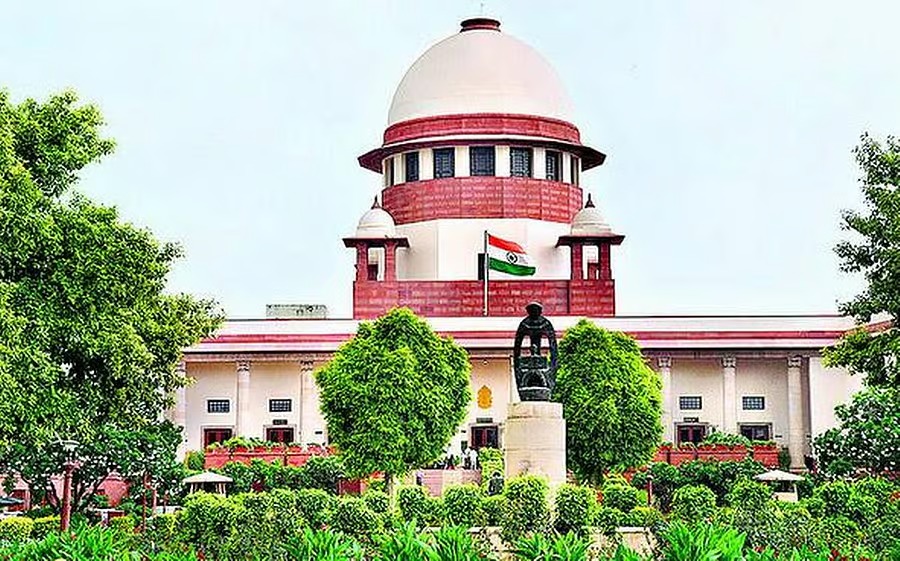B.D. Agarwal, J.@mdashIn this case, a short but an important question of law is to be examined. The question is whether substitution of plaintiffs by way of assignment of interest in the suit would amount to withdrawal of the plaintiffs from the suit. The other ancillary question is whether one of the plaintiffs can assign his or her interest in the suit without the consent of co-plaintiffs.
2. I have heard Shri T. Gogonchandra, learned Counsel for the applicants and Shri Ch. Nodiachand, learned senior counsel assisted by Shri Ch. Ngongo, learned Counsel for the Opposite Party.
3. This application has been filed by two of the three plaintiffs under Order XXII Rule 10 of the CPC seeking leave of the court to allow them (Petitioners No. 1 and 2) to be substituted by petitioner No. 3. The substitution is sought for on the ground that the petitioners No. 1 and 2 have gifted their sebaitship to their uncle, Shrithis Court Tunanbi Sharma (Petitioner No. 3) by executing a registered gift deed on 18.9.2006. The reason for gifting sebaitship is that both the petitioner Nos. 1 and 2 are unable to perform seva pujah and other day-to-day rituals of their deity/idol since they have married and living far away from their parental homes.
4. It may be mentioned here that prior to this application, the same petitioners had filed an application for substitution of petitioner No. 3 u/s 107 (2) and Section 151 read with Order 1 Rule 10 of CPC. The said application was registered as MC (RSA) No. 15 of 2006. The said application was disposed of on 19.4.2007 holding that any such application is not maintainable under the above provisions of law. However, liberty was given to the petitioners to file appropriate application under Order XXII Rule 10 of the CPC. Hence, this fresh application.
5. It may also be mentioned here that the Original suit has been filed for recovery of khas possession of the landed property of Shri Radhamadhob deity. The deity is represented by her next friends, who are also deity''s sebaits. The deity was so far represented by three next friends. The Petitioners No. 1 and 2 and Plaintiff No. 3 Shrithis Court Ibomcha Sharma are sisters and brother. They have jointly instituted the suit as next friends of the deity. The original suit No. 29/76 (old), 8/82 (new) was, however, dismissed. However, the first appeal of the plaintiffs has been decreed by the learned Addl. District Judge (FTC), Manipur East in Civil Appeal No. 4/98 (old), 3/05 (new), vide his judgment and decree dated 20thApril, 2005. This judgment is under challenge before this Court by way.of Second Appeal. During the pendency of the appeal, the above development of transfer of Sebaitship has taken place.
6. It is the case of the opposite parties that transfer of interest of two plaintiffs'' sebaitship by way of gift would amount to abandonment or withdrawal from the suit, which is regulated by Order XXIII CPC. Shri Nodiachand, learned Counsel for the contesting opposite parties submitted that under Order XXIII Rule 1(5), such part abandonment can be permitted only with the consent of other plaintiffs. According to the learned Counsel, since petitioners No. 1 and 2 have not obtained consent from the third plaintiff, the petitioners cannot be permitted to withdraw from the suit. In support of this submission, the learned Counsel has relied upon the judgment of the Hon''ble Supreme Court of India rendered in the case of
7. Per contra, it was the submission of Shri T. Gogonchandra, learned Counsel for the petitioners that transfer of interest by way of assignment does not amount to abandonment of the suit or even part of a claim. According to the learned Counsel, consent of co-plaintiffs is necessary only if the suit or part of its claim is total abandonment. It was also the submission of the learned Counsel that assignment of interest by two plaintiffs will not affect the interest of the defendants/appellants and as such, they cannot object to the substitution. Learned Counsel for the petitioners also submitted that petitioners No. 1 and 2 are legally entitled to transfer their Sebaitships. In support of this submission, the learned Counsel relied upon the judgment of Hon''ble Apex Court rendered in the case of
8. For better appreciation of the rival contentions, it would be apposite to reproduce the relevant portions of Order XXIII, which are as under:
1. Withdrawal of suit or abandonment of part of claim--(1) At any time after the institution of a suit, the plaintiff may as against all or any of the defendants abandon his suit or abandon a part of his claim:
Provided *** ***
*** *** *** (2) to (4) *** *** ***
(5) Nothing in this rule shall be deemed to authorize the Court to permit one of several plaintiffs to abandon a suit or part of a claim under Sub-rule (1), or to withdraw, under Sub-rule (3), any suit or part of a claim, without the consent of the other plaintiffs.
9. Upon a careful reading of Rule 1(1) and 1(5) of Order XXIII, it appears to me that one of the several plaintiffs can abandon his part of the suit. Under Sub-rule (5), any such permission of withdrawal can be given with the consent of co-plaintiffs. In other words, consent of co-plaintiffs is a condition precedent if one of several plaintiffs desires to abandon the suit or part of a claim under Sub-rule (1).
10. Order XXII CPC deals with substitution of plaintiffs or defendants on account of their death as well as substitution by way of assignment of interest in the suit. The procedure of assignment has been laid down under Rule 10 of Order XXII. The said Rule runs as below:
10. Procedure in case of assignment before final order in suit�(1) In other cases of an assignment, creation or devolution of any interest during the pendency of a suit, the suit may, by leave of the Court, be continued by or against the person to or upon whom such interest has come or devolved.
(Emphasis mine)
(2) The attachment of a decree pending an appeal therefrom shall be deemed to be an interest entitling the person who procured such attachment to the benefit of Sub-rule (1).
11. If the provisions of Order XXIII Rule 1 and provisions of Order XXII Rule 10 are put in juxtaposition, the legal position would become clear. Under Order XXII Rule 10, no pre-condition for assignment of any interest in the suit has been laid down. Only as a matter of precaution, the court can look into the reason of assignment and mode of devolution of interest. On the other hand, Order XXIII deals with complete withdrawal of a plaintiff from the suit or abandonment of part of his claim. In my considered opinion, assignment of interest to a third party by way of execution of an instrument in accordance with law would not amount to abandonment of any claim. It is true that the assignment of interest is akin to withdrawal from a suit. Even then, the assignment of interest cannot be termed as complete withdrawal from the suit inasmuch possibility of re-transfer of the interest, upon the original plaintiffs, would remain.
12. The other distinguishing feature in the aforesaid two provisions of law is that once a suit or any part of it is withdrawn (under Order XXIII), the plaintiffs are restrained from bringing fresh suit for the same cause of action and for the same relief, unless leave is obtained from the court for the same. However, in case of substitution of a plaintiff by way of assignment under Order XXII Rule 10, there is no provision for seeking any such leave of the court for institution of a fresh suit for the same subject matter. Leave of the court is required in this latter provision of law only for the purpose of substitution and not for instituting a fresh suit. The expression "the suit may, by leave of the court, be continued" clearly shows the intention of the legislature that the pending suit may be continued by the assignee of interest. However, an application under Order XXIII ordinarily abandons the whole or part of the suit. From these angle also, it can be said that Order XXII Rule 10 and Order XXIII Rule 1(5) operates in different fields and neither there is overlapping of the conditions nor one law has eclipsed the import of other law.
13. The authorities cited on behalf of the opposite parties are on different footing and have no application in the present case. In the case of Ramchandra Ganpat Shinde (supra), the Hon''ble Apex Court was considering the question of withdrawing a writ petition in collusion with the respondents, so as to avoid election of a Co-operative Society. In that context, order of the court was allowed to be challenged by other members of the society. In the case of Ram Gopal Sah (supra), the Patna High Court was examining an application under Order 1 Rule 10 and there was a rival claim for representation of the plaintiff''s interest. In other words, it is a case of conflict of interest between the intending plaintiffs. In the case of Thayammal v. Rangaswami Reddy (supra), the Madras High Court was examining whether a pleader can give consent on behalf of one plaintiff to with-draw his claim in the suit. Succinctly, these cited cases are somehow related to the pro; visions of Order XXIII and not a single case is covered by Order XXII CPC. In other words, none of these cases is related to the question of assignment of interest and substitution on that count. Hence, the authorities are distinguishable on facts.
14. The opposite parties have also raised a question about the bonafide of assignment of Sebaitship to Petitioner No. 3. According to the learned Counsel the petitioner No. 3 has also been impleaded in the suit as defendant No. 17 and there is a finding in the original judgment that the defendant No. 17, who was also in the family of Sebaits, had neglected in the management of affairs of the deity. On this finding of the trial court, it was urged that petitioners No. 1 and 2 could not have assigned their sebaitships to petitioner No. 3.
15. As noted at the outset of this judgment and order, the suit has been filed for recovery of khas possession of the landed property of the deity. In other words the question of Sebaitship is not involved in the suit. Hence, neither it is necessary nor it would be appropriate for me to make any observation whether the petitioner No. 3 should be permitted to perform the duties of a Sebait, on the basis of assignment of sebaitship by way of gift. In the result, the substitution prayer is accepted. It is ordered that the Petitioner No. 3 shall be substituted in place of Petitioners No. 1 and 2. The citation in the memo of appeal shall be amended accordingly. Misc. case stands disposed of.

